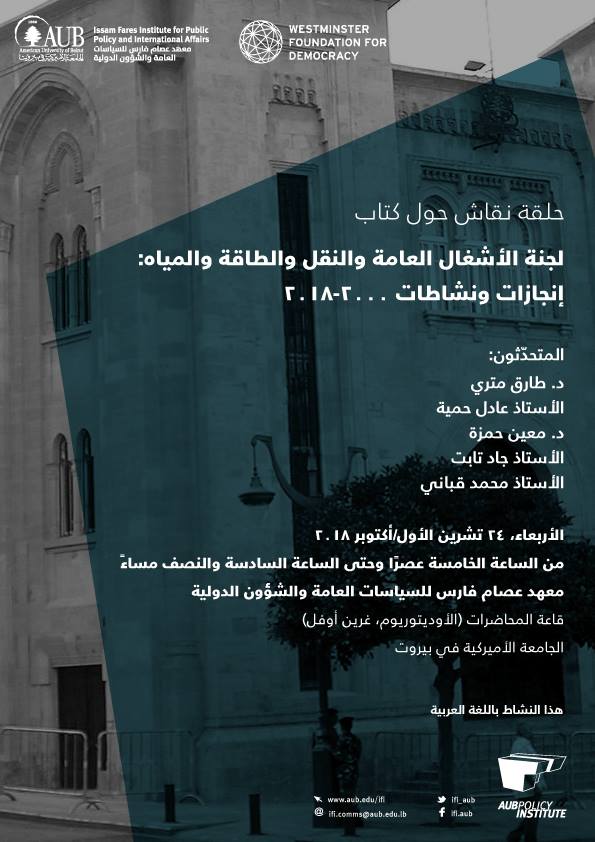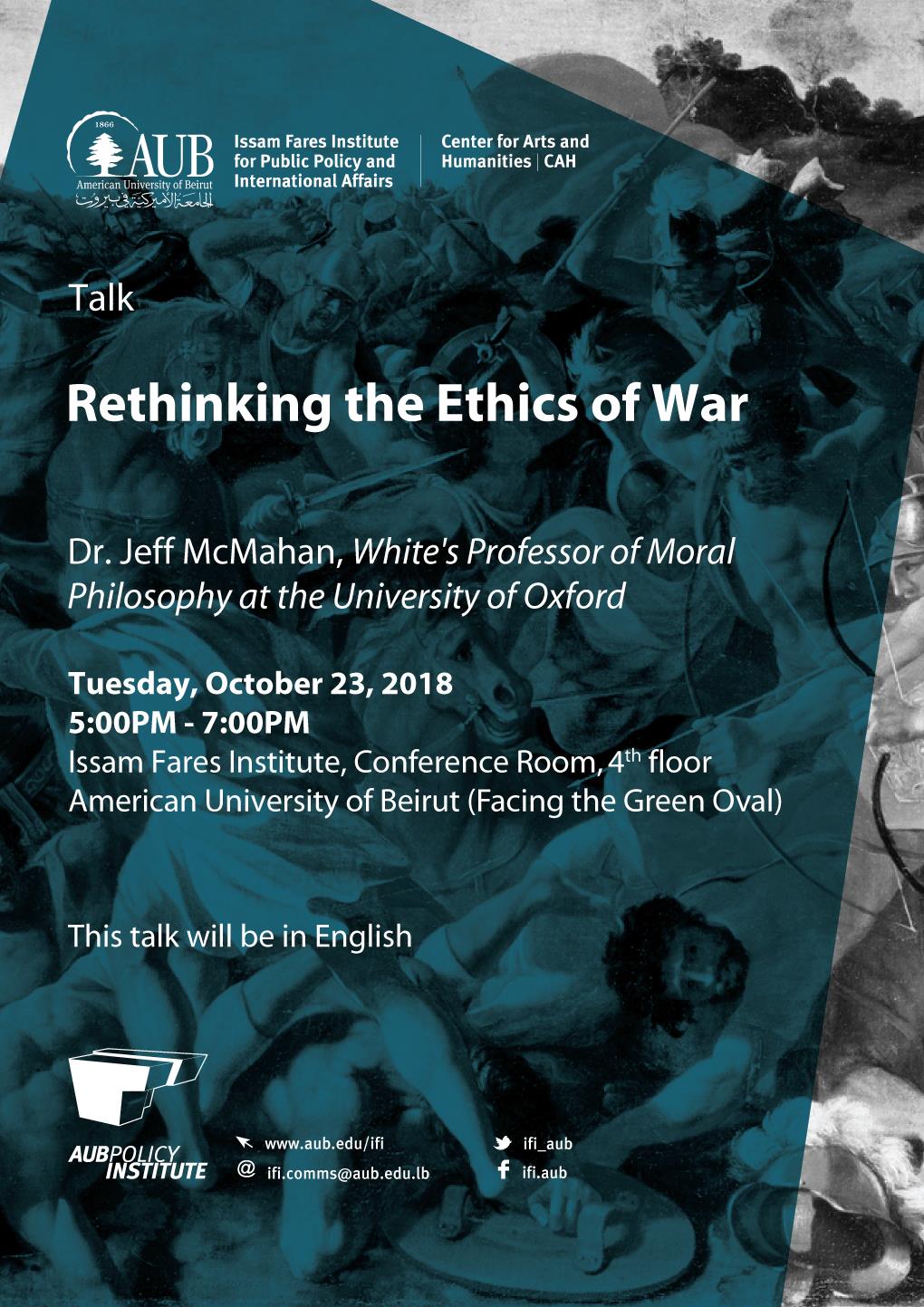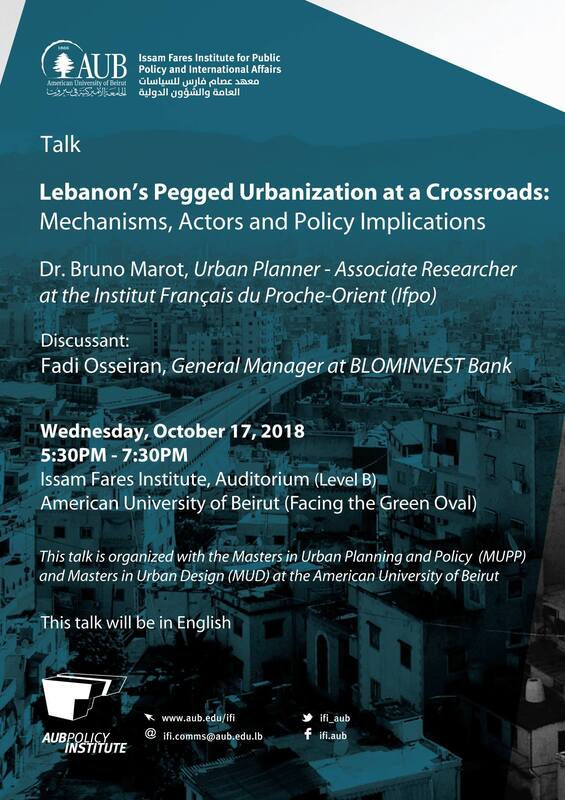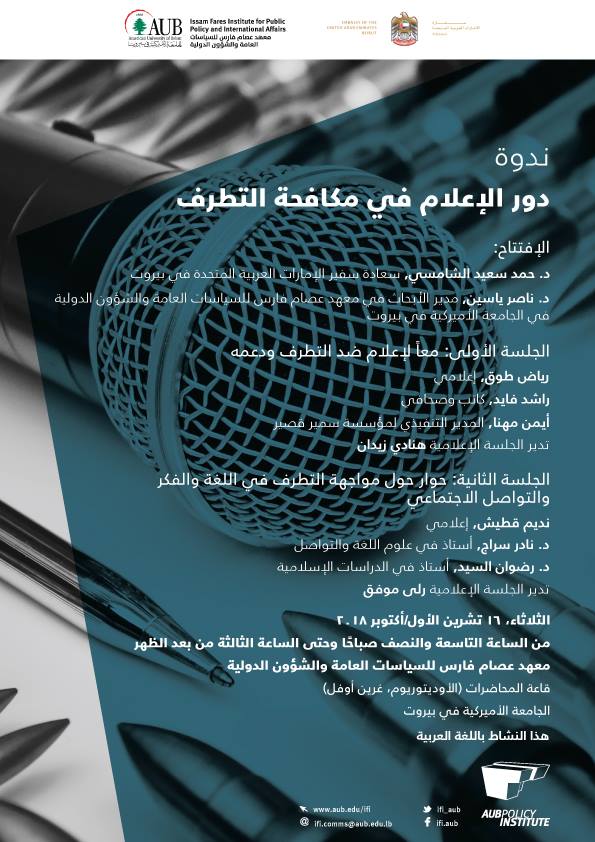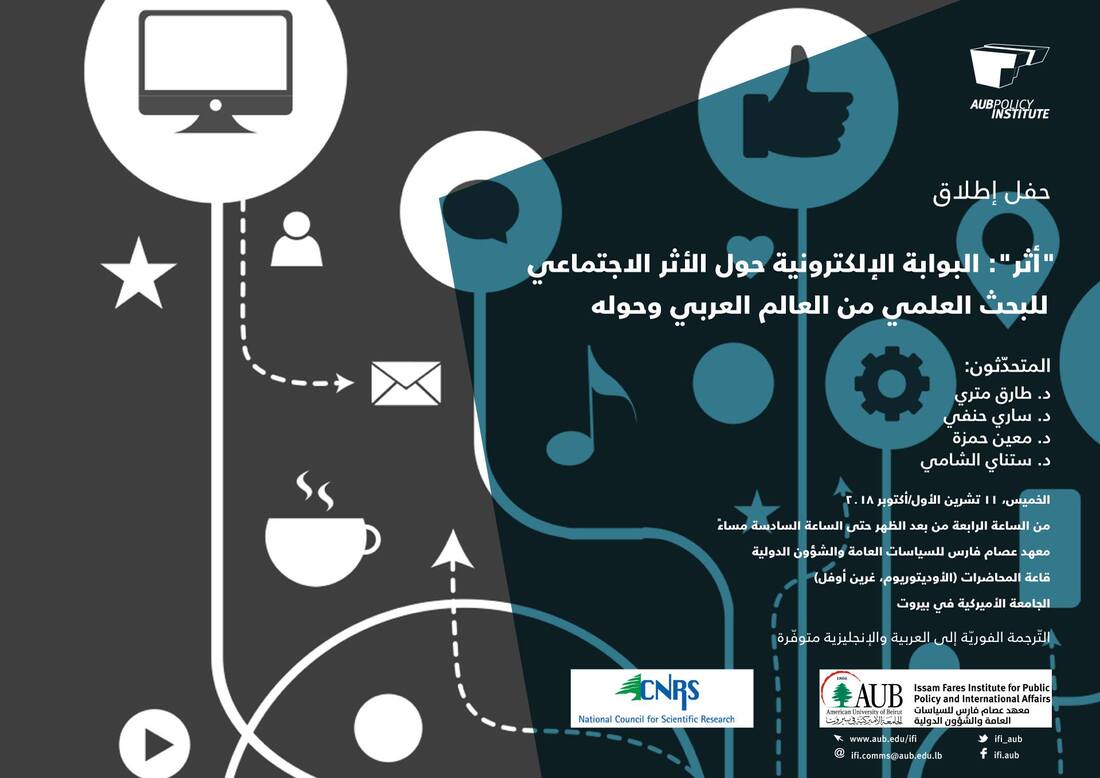|
-
بات واضحاً أن الصفقة في إطارها العام، وبكل ما تنطوي عليه من غموض ربما يكون متعمداً، هي مجموعة عناوين تتعلق بالسياسة الأميركية المضمرة لإدارة الرئيس الأميركي دونالد ترامب تجاه المنطقة، وتجاه القضية الفلسطينية، بوجه خاص. وهي إما عناوين معروفة من عهد الإدارات السابقة تعذّر تطبيقها لأسباب مختلفة، وأصبح تطبيقها الآن ممكناً من وجهة نظر هذه الإدارة (نقل السفارة الأميركية إلى القدس، استهداف الأونروا)، أو عناوين أخرى جديدة/قديمة لم يكشف عنها بهذا الوضوح من قبل الإدارات الأميركية المتعاقبة. ولذلك فإن الحديث عن صفقة القرن لا يتعدى إطار الحديث عن السياسة الأميركية لإدارة ترامب تجاة الشرق الأوسط والقضية الفلسطينية. تعالج الندوة بشكل معمق التحديات التي تطرحها الصفقة بشقيها الإقليمي/العربي والفلسطيني، بوجه خاص، وآليات مجابهتها لمشاهدة الإعادة https://www.youtube.com/watch?v=C2z16sdfyKs معهد عصام فارس للسياسات العامة والشؤون الدولية في الجامعة الأميركية في بيروت
بالتعاون مع مؤسسة وستمنستر للديمقراطية استضاف حلقة نقاشية حول كتاب "لجنة الأشغال العامة والنقل والطاقة والمياه: إنجازات ونشاطات 2000-2018" Over the past 15 years the traditional theory of the just war has been the target of sustained philosophical criticism. This understanding of the ethics of war has in fact been largely replaced by a quite different “revisionist” approach, which is characterized mainly by its claim that individual action rather than membership in some collective, such as the group of combatants or the group of noncombatants, is the basis of liability to attack in war.
This overthrow of the centuries-old orthodoxy over a short period of time is little known outside of academic philosophy, though it has begun to prompt serious reflection by some important legal theorists who write about the law of armed conflict or international criminal law. In this talk, Jeff McMahan explained the main differences between traditional and revisionist just war theory and sketched some of the reasons and arguments that have led to the rejection of the traditional view. The talk also included some remarks about the role of nonviolent in the ethics of war. Pegged urbanization is a distinctive feature of Lebanon’s rentier and finance-led version of capitalism. It is a state-sponsored model of financialized urban development that places the property market, through its financing channels, in the position of a peg that binds city-making to the country’s economic, financial and monetary stability. This talk aimed to explain why and how this is the case by revealing the main drivers, mechanisms and actors of the powerful finance-property link at play. It also explored two of its major and most topical policy implications: (i) the exacerbation of a protracted housing crisis and (ii) the risk of a property-generated financial disaster.
-- About Bruno Marot: Bruno Marot is a city planner and an associate researcher at the Institut Français du Proche-Orient (Ifpo). He holds a PhD in urban policy, planning and design from McGill University (2018) and two master’s degrees from Sciences Po – Paris (2011) and the Institut d’Urbanisme de Paris (2009). Bruno works now as an urban development consultant and is an occasional contributor to City, Jadaliyya, Le Commerce du Levant, La Revue Fiscale Libanaise and Executive Magazine. His doctoral research investigated Lebanon’s model of ‘pegged urbanization’ in which the property market is the anchor that pins city-making to the country’s economic, financial and monetary stability. His expertise and research interests generally include urban political economy, land and real estate economics, urban governance and housing provision. تهدف هذه الندوة إلى تسليط الضوء على دور الإعلام في تبني خيارات مهنية تسهم في مكافحة التطرّف، كما تهدف إلى خلق حوار في مواجهة التطرّف في اللغة والفكر والتواصل
The Issam Fares Institute for Public Policy and International Affairs at the American University of Beirut and the National Council for Scientific Research are pleased launched the “Portal for Social Impact of Scientific Research - ATHAR” (previously known as PSISR), a portal that serves as a tool for the exchange of information specialized in the assessment of the social impact of scientific research in/on the Arab world (http://atharportal.net). The event took place on Thursday, October 11, 2018 from 4:00 to 6:00 P.M. at the Auditorium of the Issam Fares Institute for Public Policy and International Affairs - AUB. The program included presentations by Drs. Tarek Mitri, Sari Hanafi, Mouin Hamza, and Seteney Shami, followed by a reception.
“ATHAR” aims to create an open repository documenting the trajectory of the scientific research in its different stages, and the way it interacts with social and public policy issues. This portal relies on direct input by researchers, who are required to describe their research projects, outcomes, and their "social" impact, in addressing economic, political, and cultural issues. The search engine will, of course be accessible to public and specifically to all concerned stakeholders. We hope that you will be able to join us, and if not please send your representatives. Watch the re-run |
Archives
July 2024
|

